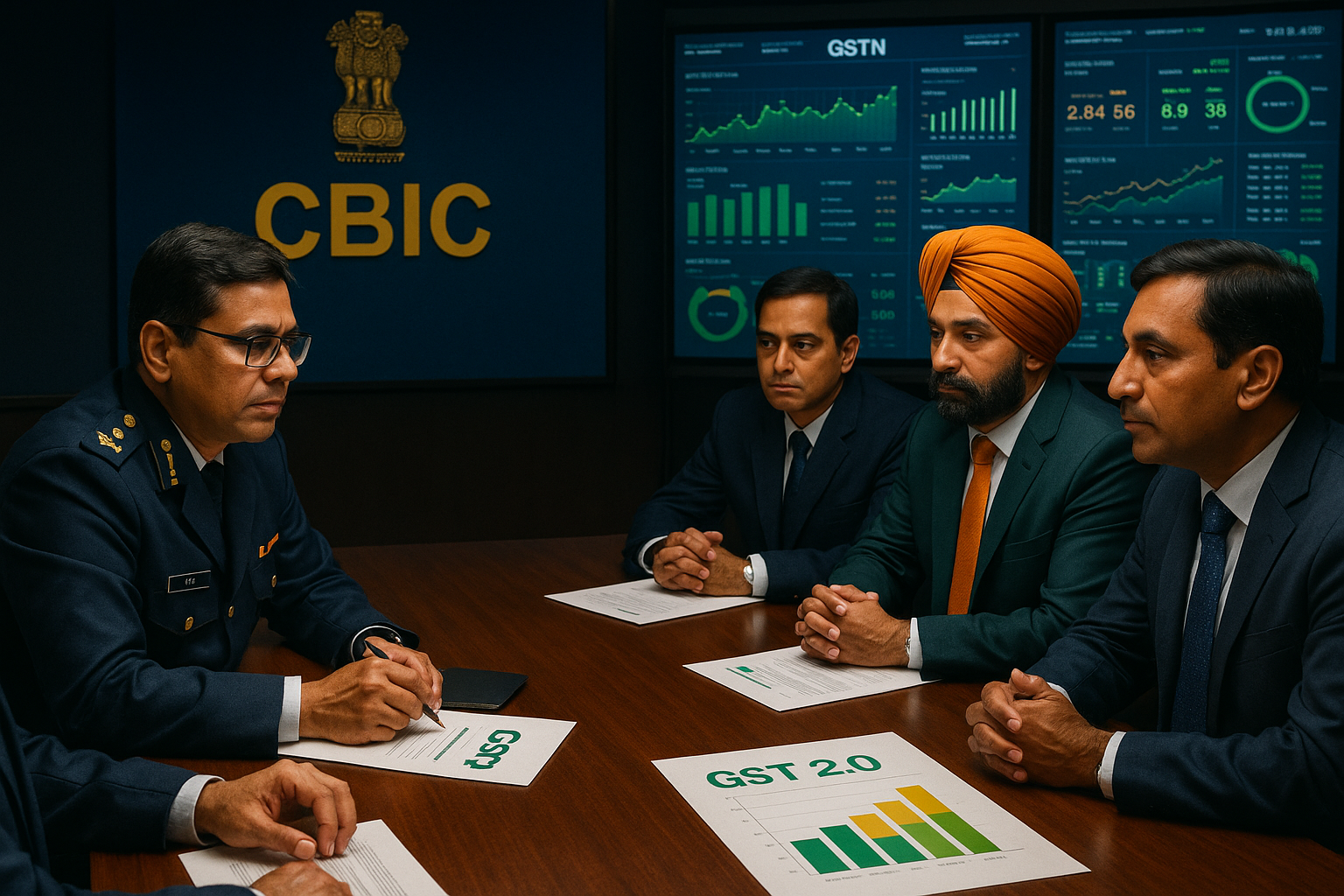The Central Board of Indirect Taxes and Customs (CBIC) will hold consultations with industry associations and trade bodies to ensure a smooth rollout of the GST 2.0 reforms. The initiative aims to address implementation concerns, enhance clarity on compliance, and avoid disruptions in supply chains as the new rate structure takes effect.
By engaging directly with stakeholders, the CBIC is signaling a collaborative approach that emphasizes industry readiness alongside policy reform.
Core Development
The upcoming consultations will focus on:
Compliance Simplification: Clarifying FAQs and minimizing disputes over new slab classifications.
Technology Readiness: Ensuring GSTN upgrades can handle increased volumes.
State-Industry Coordination: Aligning state tax administrations with industry concerns.
Officials noted that lessons from the 2017 GST rollout are shaping this outreach, with emphasis on clear communication and problem-solving before full-scale implementation.
Key Drivers Behind the Move
Preventing Glitches: Early dialogue avoids disruption in billing and logistics.
Building Confidence: Industry buy-in is essential for reform credibility.
Transparency: Reinforcing trust in tax reforms by addressing pain points proactively.
Stakeholder Impact
Trade Bodies & Businesses: Gain clarity on compliance and operational adjustments.
Consumers: Indirect benefits through smoother transition and uninterrupted supply chains.
Government: Strengthens credibility of GST 2.0 as a business-friendly reform.
Industry & Policy Reactions
Industry groups welcomed the CBIC’s proactive engagement, saying it would help reduce compliance uncertainty. Analysts added that such dialogue is vital to ensure GST 2.0 becomes a seamless reform, strengthening both demand and tax collection efficiency.
Challenges Ahead
Uniform Implementation: Coordination across states remains critical.
System Stress: GSTN must handle higher loads without technical disruptions.
Monitoring Compliance: Ensuring benefits of rationalization reach businesses and consumers.
Strategic Outlook
CBIC’s engagement underscores a partnership-driven model for policy execution. By ensuring industry alignment, India’s GST 2.0 rollout could avoid earlier pitfalls and emerge as a benchmark in collaborative reform.
Why This Matters
Effective policy execution depends on both government readiness and stakeholder cooperation. CBIC’s outreach signals that GST 2.0 is not just a reform on paper but a coordinated effort to boost confidence, efficiency, and growth.












